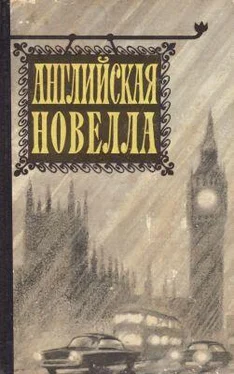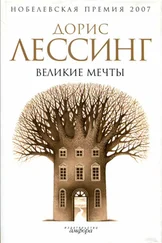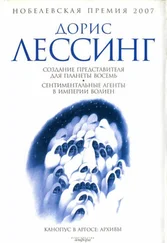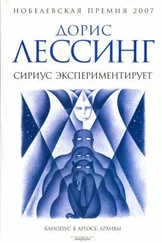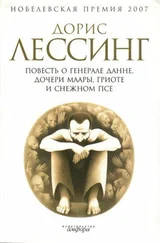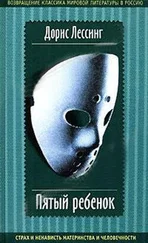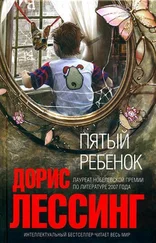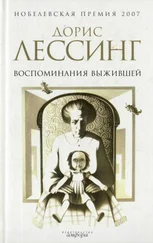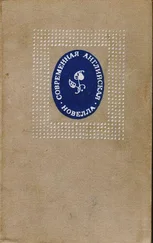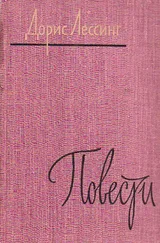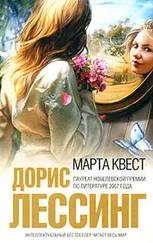Дорис Лессинг - Саранча. Колдовство не продаётся
Здесь есть возможность читать онлайн «Дорис Лессинг - Саранча. Колдовство не продаётся» весь текст электронной книги совершенно бесплатно (целиком полную версию без сокращений). В некоторых случаях можно слушать аудио, скачать через торрент в формате fb2 и присутствует краткое содержание. Город: Ленинград, Год выпуска: 1961, Издательство: Лениздат, Жанр: Современная проза, на русском языке. Описание произведения, (предисловие) а так же отзывы посетителей доступны на портале библиотеки ЛибКат.
- Название:Саранча. Колдовство не продаётся
- Автор:
- Издательство:Лениздат
- Жанр:
- Год:1961
- Город:Ленинград
- ISBN:нет данных
- Рейтинг книги:3 / 5. Голосов: 1
-
Избранное:Добавить в избранное
- Отзывы:
-
Ваша оценка:
- 60
- 1
- 2
- 3
- 4
- 5
Саранча. Колдовство не продаётся: краткое содержание, описание и аннотация
Предлагаем к чтению аннотацию, описание, краткое содержание или предисловие (зависит от того, что написал сам автор книги «Саранча. Колдовство не продаётся»). Если вы не нашли необходимую информацию о книге — напишите в комментариях, мы постараемся отыскать её.
Саранча. Колдовство не продаётся — читать онлайн бесплатно полную книгу (весь текст) целиком
Ниже представлен текст книги, разбитый по страницам. Система сохранения места последней прочитанной страницы, позволяет с удобством читать онлайн бесплатно книгу «Саранча. Колдовство не продаётся», без необходимости каждый раз заново искать на чём Вы остановились. Поставьте закладку, и сможете в любой момент перейти на страницу, на которой закончили чтение.
Интервал:
Закладка:
'But what's the use of that? Margaret wondered, if the whole farm was going to be crawling with hoppers? But she listened while they discussed the new Government pamphlet which said how to defeat the hoppers. You must have men out all the time moving over the farm to watch for movement in the grass. When you find a patch of hoppers, small lively black things, like crickets, then you dig trenches around the patch, or spray them with poison from pumps supplied by the Government. The Government wanted them to cooperate in a world plan for eliminating this plague for ever. You should attack locusts at the source. Hoppers, in short. The men were talking as if they were planning a war, and Margaret listened, amazed.
In the night it was quiet, no sign of the settled armies outside, except sometimes a branch snapped, or a tree could be heard crashing down.
Margaret slept badly in the bed beside Richard, who was sleeping like the dead, exhausted with the afternoon's fight. In the morning she woke to yellow sunshine lying across the bed, clear sunshine, with an occasional blotch of shadow moving over it. She went to the window. Old Stephen was ahead of her. There he stood outside, gazing down over the bush. And she gazed, astounded — and entranced, much against her will. For it looked as if every tree, every bush, all the earth, were lit with pale flames. The locusts were fanning their wings to free them of the night dews. There was a shimmer of red-tinged gold light everywhere.
She went out to join the old man, stepping carefully among the insects. They stood and watched. Overhead the sky was blue, blue and clear.
'Pretty, said old Stephen, with satisfaction.
Well, thought Margaret, we may be ruined, we may be bankrupt, but not everyone has seen an army of locusts fanning their wings at dawn.
Over the slopes, in the distance, a faint red smear showed in the sky, thickened and spread. "There they go, said old Stephen. 'There goes the main army, off South.
And now from the trees, from the earth all round them, the locusts were taking wing. They were like small aircraft, manoeuvring for the take-off, trying their wings to see if they were dry enough. Off they went. A reddish-brown steam was rising off the miles of bush, off the lands, the earth. Again the sunlight darkened.
And as the clotted branches lifted, the weight on them lightening, there was nothing but the black spines of branches, trees. No green left, nothing. All morning they watched, the three of them, as the brown crust thinned and broke and dissolved, flying up to mass with the main army, now a brownish-red smear in the Southern sky. The lands which had been filmed with green, the new tender mealie plants, were stark and bare. All the trees stripped. A devastated landscape. No green, no green anywhere.
By midday the reddish cloud had gone. Only an occasional locust flopped down. On the ground were the corpses and the wounded. The African labourers were sweeping these up with branches and collecting them in tins.
'Ever eaten sun-dried locust? asked old Stephen. 'That time twenty years ago, when I went broke, I lived on mealiemeal and dried locusts for three months. They aren't bad at all — rather like smoked fish, if you come to think of it.
But Margaret preferred not even to think of it.
After the midday meal the men went off to the lands. Everything was to be replanted. With a bit of luck another swarm would not come travelling down just this way. But they hoped it would rain very soon, to spring some new grass, because the cattle would die otherwise — there was not a blade of grass left on the farm. As for Margaret, she was trying to get used to the idea of three or four years of locusts. Locusts were going to be like bad weather, from now on, always imminent. She felt like a survivor after the war — if this devastated and mangled countryside was not ruin, well, what then was ruin?
But the men ate their supper with good appetites.
'It could have been worse, was what they said. It could be much worse.
No Witchcraft for Sale
The Farquars had been childless for years when little Teddy was born; and they were touched by the pleasure of their servants, who brought presents of fowls and eggs and flowers to the homestead when they came to rejoice over the baby, exclaiming with delight over his downy golden head and his blue eyes. They congratulated Mrs Farquar as if she had achieved a very great thing, and she felt that she had — her smile for the lingering, admiring natives was warm and grateful.
Later, when Teddy had his first haircut, Gideon the cook picked up the soft gold tufts from the ground, and held them reverently in his hand. Then he smiled at the little boy and said: 'Little Yellow Head'. That became the native name for the child. Gideon and Teddy were great friends from the first. When Gideon had finished his work, he would lift Teddy on his shoulders to the shade of a big tree, and play with him there, forming curious little toys from twigs and leaves and grass, or shaping animals from wetted soil. When Teddy learned to walk it was often Gideon who crouched before him, clucking encouragement, finally catching him when he fell, tossing him up in the air till they both became breathless with laughter. Mrs Farquar was fond of the old cook because of his love for the child.
There was no second baby; and one day Gideon said: 'Ah missus, missus, the Lord above sent this one; Little Yellow Head is the most good thing we have in our house. Because of that 'we' Mrs Farquar felt a warm impulse towards her cook; and at the end of the month she raised his wages. He had been with her now for several years; he was one of the few natives who had his wife and children in the compound and never wanted to go home to his kraal, which was some hundreds of miles away. Sometimes a small piccanin who had been born the same time as Teddy, could be seen peering from the edge of the bush, staring in awe at the little white boy with his miraculous fair hair and northern blue eyes. The two little children would gaze at each other with a wide, interested gaze, and once Teddy put out his hand curiously to touch the black child's cheeks and hair.
Gideon, who was watching, shook his head wonderingly, and said: 'Ah, missus, these are both children, and one will grow up to be a Baas, and one will be a servant'; and Mrs Farquar smiled and said sadly, 'Yes, Gideon, I was thinking the same. She sighed. 'It is God's will, said Gideon, who was a mission boy. The Farquars were very religious people; and this shared feeling about God bound servant and masters even closer together.
Teddy was about six years old when he was given a scooter, and discovered the intoxications of speed. All day he would fly around the homestead, in and out of flowerbeds, scattering squawking chickens and irritated dogs, finishing with a wide dizzying arc into the kitchen door. There he would cry: 'Gideon, look at me! And Gideon would laugh and say: 'Very clever, Little Yellow Head. Gideon's youngest son, who was now a herdsboy, came especially up from the compound to see the scooter. He was afraid to come near it, but Teddy showed off in front of him. 'Piccanin, shouted Teddy, 'get out of my way! And he raced in circles around the black child until he was frightened, and fled back to the bush.
'Why did you frighten him? asked Gideon, gravely reproachful.
Teddy said defiantly: 'He's only a black boy, and laughed. Then, when Gideon turned away from him without speaking, his face fell. Very soon he slipped into the house and found an orange and brought it to Gideon, saying: 'This is for you. He could not bring himself to say he was sorry; but he could not bear to lose Gideon's affection either. Gideon took the orange unwillingly and sighed. 'Soon you will be going away to school, Little Yellow Head, he said wonderingly, 'and then you will be grown up. He shook his head gently and said, 'And that is how our lives go. He seemed to be putting a distance between himself and Teddy, not because of resentment, but in the way a person accepts something inevitable. The baby had lain in his arms and smiled up into his face: the tiny boy had swung from his shoulders, had played with him by the hour. Now Gideon would not let his flesh touch the flesh of the white child. He was kind, but there was a grave formality in his voice that made Teddy pout and sulk away. Also, it made him into a man: with Gideon he was polite, and carried himself formally, and if he came into the kitchen to ask for something, it was in the way a white man uses towards a servant, expecting to be obeyed.
Читать дальшеИнтервал:
Закладка:
Похожие книги на «Саранча. Колдовство не продаётся»
Представляем Вашему вниманию похожие книги на «Саранча. Колдовство не продаётся» списком для выбора. Мы отобрали схожую по названию и смыслу литературу в надежде предоставить читателям больше вариантов отыскать новые, интересные, ещё непрочитанные произведения.
Обсуждение, отзывы о книге «Саранча. Колдовство не продаётся» и просто собственные мнения читателей. Оставьте ваши комментарии, напишите, что Вы думаете о произведении, его смысле или главных героях. Укажите что конкретно понравилось, а что нет, и почему Вы так считаете.
